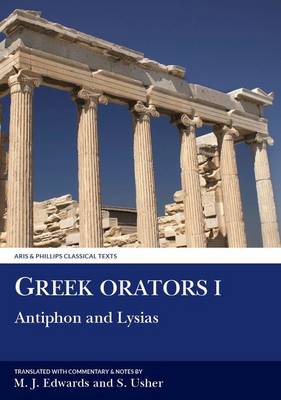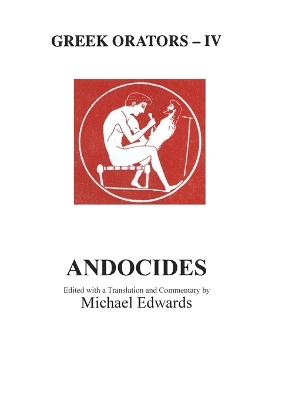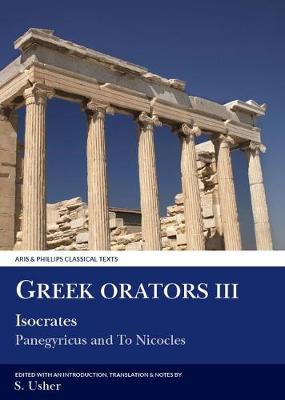Aris & Phillips Classical Texts
3 total works
Rational persuasion and appeal to an audience's emotions are elements of most literature, but they are found in their purest form in oratory. The speeches written by the Greek Orators for delivery in law-courts, deliberative councils and assemblies enjoyed an honoured literary status, and rightly so, for the best of them have great vitality. There is no crude, primitive stage of development: the earliest speeches are perfect in form and highly sophisticated in technique. They inform the reader about aspects of Greek society and about their moral values, in a direct and illuminating way not paralleled in other literature.This edition offers a contrasting pair of early orators. In his speech The Murder of Herodes, edited by Michael Edwards, Antiphon relies on a varied and resourceful use of probability argument, presented with great force and gravity. Motivation of both defendant and prosecutor is also explored thoroughly, as are the religious aspects of homicide. The five speeches by Lysias, edited by Stephen Usher, illustrate that orator's skill in using narrative to portray character and his talent for creating and dispelling personal and political prejudice in difficult cases. The Commentary seeks to call attention to the orators' rhetorical and stylistic skills to a degree not previously attempted in editions of the orators, to elucidate historical and legal matters and to explain textual and grammatical difficulties. The notes are keyed to the translation, rendering the speeches accessible to the reader with little or no Greek.Greek text with translation, commentary and notes.
Rational persuasion and appeal to an audience's emotions are
elements of most literature, but they are found in their purest
form in oratory. The speeches written by the Greek Orators for
delivery in law-courts, deliberative councils and assemblies
enjoyed an honoured literary status, and rightly so, for the best
of them have great vitality. There is no crude, primitive stage
of development: the earliest speeches are perfect in form and
highly sophisticated in technique. They inform the reader about
aspects of Greek society and about their moral values, in a
direct and illuminating way not paralleled in other literature.
Text with translation, commentary and notes.
elements of most literature, but they are found in their purest
form in oratory. The speeches written by the Greek Orators for
delivery in law-courts, deliberative councils and assemblies
enjoyed an honoured literary status, and rightly so, for the best
of them have great vitality. There is no crude, primitive stage
of development: the earliest speeches are perfect in form and
highly sophisticated in technique. They inform the reader about
aspects of Greek society and about their moral values, in a
direct and illuminating way not paralleled in other literature.
Text with translation, commentary and notes.
Two contrasting works, both in style and content, illustrate the versatility of Isocrates, the most accomplished writer of polished periodic Greek prose. The Panegyricus is a patriotic work of Athenian propaganda composed with great care and also intended to advertise his skills to potential pupils at his school for leading statesmen. In it he argues the case for Athenian leadership of a pan-Hellenic expedition against Persia, representing it as a cultural as well as a military crusade. In To Nicocles , he offers advice to one of his pupils, the newly-crowned king of Cyprus, on how to rule acceptably to his people and tolerably to himself. From it emerges a portrait of the ideal Hellenistic monarch. Less elaborately written than the Panegyricus , it displays its author's ability to write with clairty and economy. Greek text with parallel English translation.


